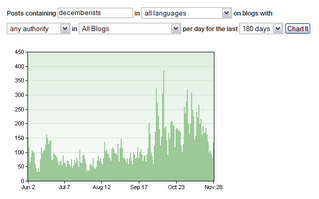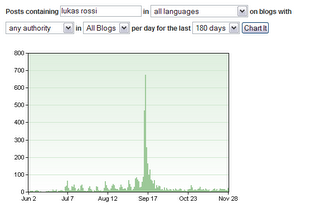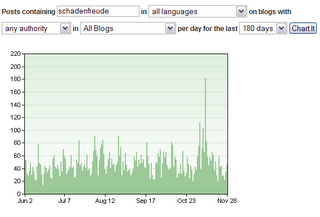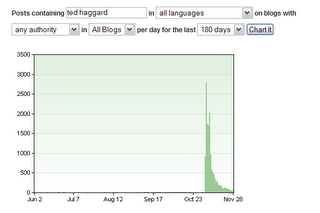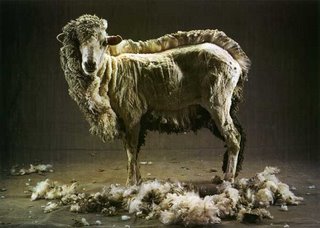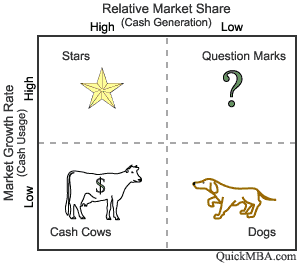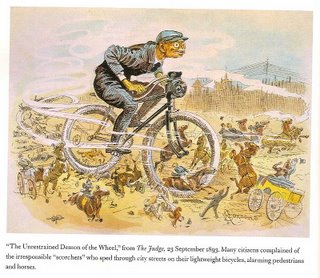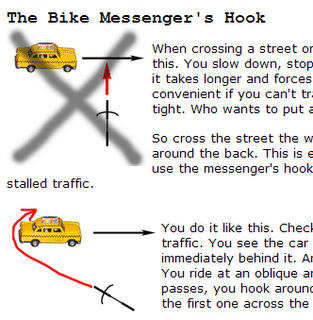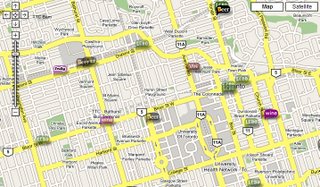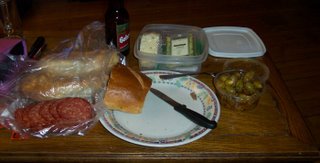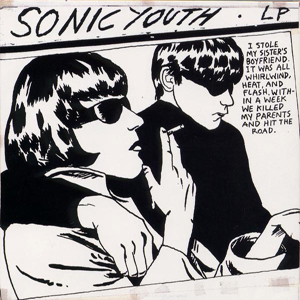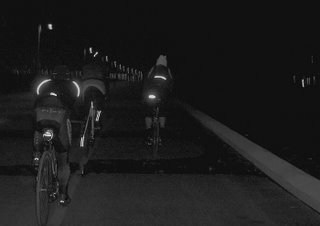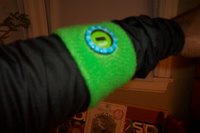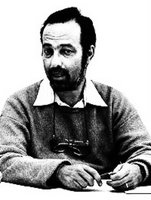
One of the most interesting, if not the most memorable professors I had in university was Bruce Pomeranz. I took a 3rd year neurophysiology course (yes, at U of T) with Professor Pomeranz, and though the course was interesting, what was notable was the man himself, an iconoclast.
The first day when we walked in, projected on the screen was his CV. It's just up there for ten, fifteen minutes. And it was impressive, really impressive. Medical school, post-grad degrees, all kinds of honours and awards; all early in his career. Professor of zoology, professor of physiology. And we're all looking at each other like " Woah! What kind of pretentious prick is this guy ? What the fuck ?"
Then the dude himself appears, he's got frizzy black hair and he's wearing a loud shirt and blazer, looking like a Berkley Christopher Lloyd (that is a much older pic on the left there, he was heavier and looked
crazier). And he's just like "So, I'm Bruce Pomeranz, I went to school here and here and here and I got all these stupid honours and awards" and "this degree was bullshit" pointing to the M.D. And Everyone laughed, but it was one of those laughs like at a movie, a black comedy, where people aren't sure if it's okay to laugh. Because remember, for almost all the students in that audience an MD would the fulfillment of the greatest dream. And Pomeranz knows that.
The course material was interesting, but mundane, action potentials and hormones, but what was wild were Pomeranz's talks about his research. He did research into a lot of kooky subjects, mostly to do with alternative medicine, but also into ESP and telekeneis. Wacky shit. He would brag that he could do this now, because he was tenured, he had played the conventional game (and well) into his current position.
He was the guy who showed the world that pain-relief by acupunture (acupuncture analgesia) worked and with a mechanism that was accepted by modern medicine.
He was also a collaborator with
Jacques Benveniste in an infamous
Nature paper which looked at homeopathy and "water" memory.
The theory goes like this: some ingredient is added to water, then it is diluted over and over so that in a dose of medecine not even one molecule of the ingredient is expected to remain, but somehow the molecular structure of liquid water retains the memory of that ingredient and displays some medical function.
The paper was viciously attacked by skeptics, the laboratory and scientists that produced the paper were intensely scrutinized. Referees went through all the lab records and looked at all the procedures and tried to replicate the results in the paper. Never had a scientific paper been challenged and attacked so vehemently. Benveniste claimed it was a witchhunt and a conspiracy to discredit his work.
Anyways, I'm remembering all this because I came across
this interview with Bruce Pomeranz.
His main philosophy was that a scientist should have an open but skeptical mind. And he admitted,
even bragged; as a tenured bigshot who had already made an important contribution to medicine he had the freedom to study weird and wacky pseudoscience.
But he has a take on stuff I like, but I don't think most scientists will ever have the opportunity, or the luxury to operate the way Prof. Pomeranz does.
Here's some good excerpts from that interview :
Bruce Pomeranz: I'm a neuroscientist whose job is to disprove. Karl Popper, a famous philosopher of science, said you never prove anything, but you try to disprove your hypothesis. You do everything possible that any skeptic could think of to show that the hypothesis doesn't work; in spite of that, if it still survives, then you're okay.
According to my hypothesis, acupuncture stimulates peripheral nerves that send messages to the brain to release endorphins (morphine-like compounds); these endorphins block pain pathways in the brain. In testing our acupuncture/endorphin theory, one line [of evidence] was based on measurement of endorphin levels....How do you know that it wasn't just stress that raised the endorphins? So that one line of evidence, though very compelling, doesn't prove anything.
We got another line of evidence [by asking]: What happens when you block the endorphins? We used naloxone, a powerful endorphin blocker ... In the subsequent years, we accumulated these 16 different lines of evidence all supporting our hypothesis
Much of medicine resides on these one-dimensional proofs. Another common mistake is when you take one line of evidence and repeat the research over and over again. But 16 replications are not the same as 16 lines of experiments.
AT: It seems that all our research is structured to find out why acupuncture works within the Western scientific paradigm. But why do the Chinese think it works?
Pomeranz: They have a whole different cosmology and to them it works [within their framework]. You can explain things many different ways. The question is, in the Popperian sense, is it falsifiable? If you explain what happened to you because god in her wisdom did something, how are you going to test that? When you try to falsify it, you're stuck. The traditional Chinese medicine (TCM) paradigm is energetic. Chi energy is flowing through meridians. This may be one possible explanation of a thousand things that are going on. But so far, I've looked at the evidence for chi. There's nothing.
I think there are two ways of being a scientist or even a modern person. There's the empirical approach, which is trial and error: Does it work? If it works, then I'll use it. In alternative medicine you see this in spades. If chicken soup works, use it. You don't have to have a theory about chicken soup. Then there's the theoretical approach. To me, those are the two ways of handling yourself. If acupuncture works, then use it; it doesn't matter whether it works through chi or endorphins.
The Chinese were very empirical in the early days of acupuncture (2200 years ago). They were Taoists, and the Taoists didn't want to explain nature. They just wanted to be in harmony with it, so they were very empirical about nature. Now, the Chinese are no different from the rest of us. Two hundred years later (2000 years ago), along came the Confucists and the theoreticians, and they tried to explain how acupuncture works. And I think that's the problem with chi and yin and yang: they were explanations, theories. Unfortunately, they were not testable theories.
First, physicians learn acupuncture because of the endorphin theory; they try it and see that it works, then they want to learn about TCM and chi. But where this is going to lead scientifically, I don't know. It may turn out that chi is what is going on ... But so far, there is no evidence for chi or prana. Unfortunately, people often throw out the baby with the bath water. What scares me about acupuncture and chi, is that, ultimately, somebody may disprove chi. They may disprove it, but we shouldn't throw out acupuncture because chi doesn't exist.
Aldous Huxley once asked, "How could a needle in the toe possibly help your liver?" Then he added, "If it works, we ought to change our theory about the liver."
